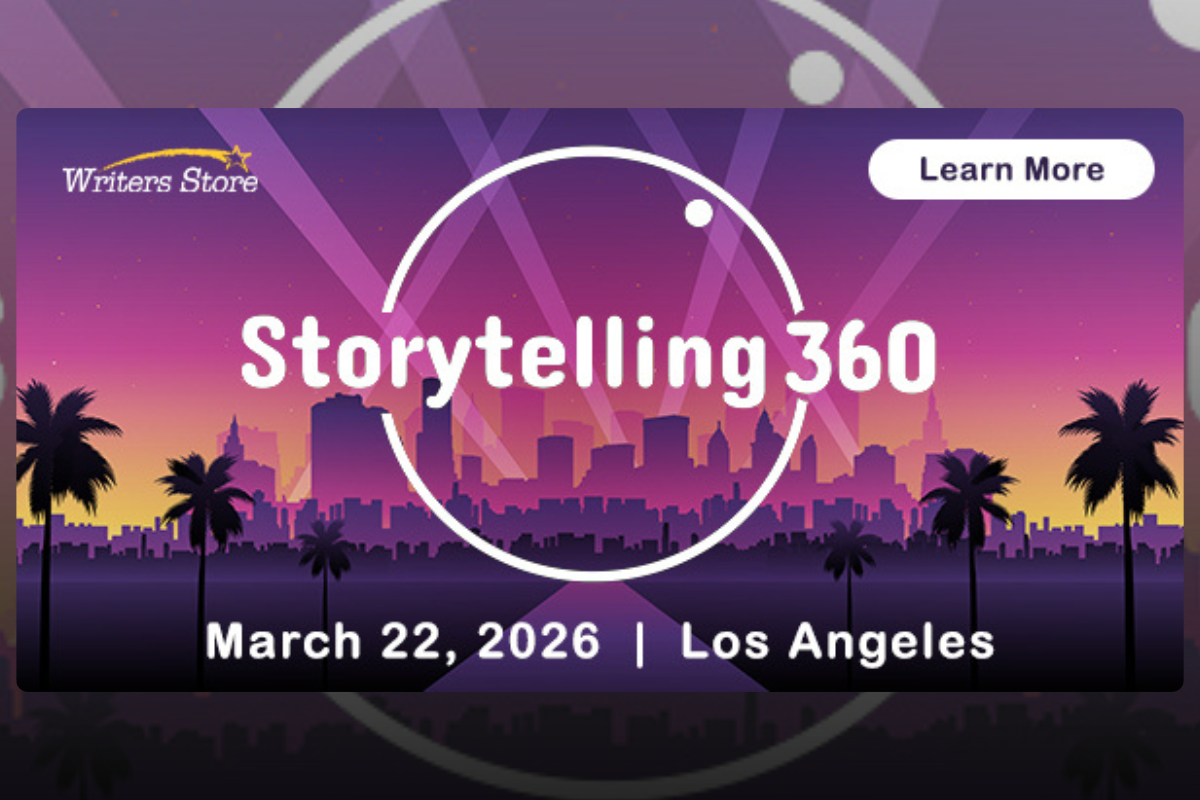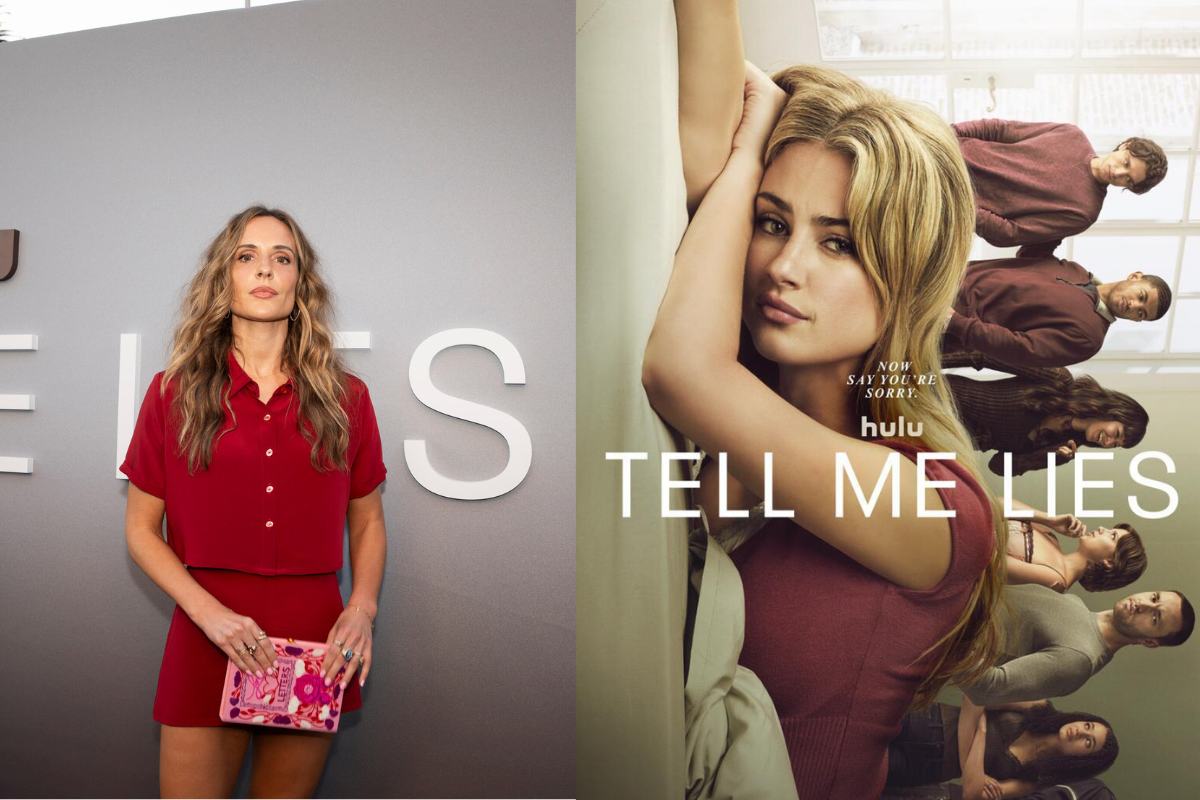HBO’s Manic – Conversation with Creators Kate Marks and Yolanda Carney
Meet HBOAccess fellows, Director, Kate Marks and Writer, Yolanda Carney, creators of Manic, a show about an Ivy-league bound, overachieving teen who, after a manic episode, is placed in a school for kids with mental illness. Available on HBOGo and HBONow.
Meet HBOAccess fellows, Director, Kate Marks and Writer, Yolanda Carney, creators of Manic a show about an Ivy-league bound, overachieving teen who, after a manic episode, is placed in a school for kids with mental illness. Available on HBOGo and HBONow.
HBO currently has two programs that aim to provide guidance and education for writers and directors from diverse backgrounds. One of them, the HBOAccess Writing Fellowship, is a program aimed at providing mentorship for up to eight diverse, emerging storytellers. Following a one-week intensive, fellows are immersed in eight months of mentoring by HBO creative executives, as each participant develops a script for HBO or Cinemax. The other, the HBOAccess Directing Fellowship, invites budding filmmakers to demonstrate their talent, skills and—most importantly—growth potential. Only a few talented fellows are selected every two years to direct outstanding short films.
I sat down for a fascinating conversation with two of these fellows: Director, Kate Marks and Writer, Yolanda Carney. Kate and Yolanda had recently screened their show, Manic, currently available to screen on HBOGo and HBONow, at the 2017 Tribeca Film Festival, New Orleans, ITVFest, and NYTVFest. Manic is a show about an Ivy-league bound, overachieving teen who, after a manic episode, is placed in a school for kids with mental illness.
Please tell us a little bit about each of you.
Kate Marks: I started out working in New York theatre, writing and directing in busted old spaces where the ceiling is literally falling down on you. I made a short dance video with a bunch of old ladies in sequins, and I was hooked on film. I did my MFA at CalArts where I made more shorts and those films helped me get into the HBO fellowship. I fell in love with Yolanda’s Manic the moment I read it. I loved the obsessive overachiever character, Aurora. I was one of those high school kids who signed up for every club out there and slept about three hours a night, so I immediately related to Aurora’s addiction to over-achievement.
Yolanda Carney: I'm from Washington D.C. So I grew up like a city brat kid. I was pretty much the biggest theater nerd in high school and junior high. I was always in a play or working on a play for school and eventually I started writing plays to put on at our school. That got me into writing and then I went to college where I got into sketch comedy. I left college and said to myself, “OK, I like sketch comedy so I'm going to go to Chicago and do Second City and then write for SNL and everything's going to work exactly like that” (laughs).
So I move Chicago. After graduating from college and lived here for two years doing improv and really seriously performing for a long time before I got back into writing. And through the grace of just sheer, fate and luck I got into the HBO writing program. I was this very green, 25-year-old who hadn't really been doing much other than stage work and stage writing. I pitched this idea, for Manic, to HBO. I said I had this teen drama/comedy about girls growing up and coming of age in a mental institution and they were into it.
So we developed it together over the course of a year and then, also by the grace of luck and fate, Kate came along.
Can you tell me a little bit more about the HBOAccess program and how the “pitching” process you mentioned works?
Yolanda: Yes, the writing program works in three rounds. I sent in my script and they picked 20. That’s the second round. After that they knock it down to 12 or 15 and those people get invited to a pitch meeting and that’s the most important part of the process because it shows your point of view and your vision for future projects. So you get to pitch three ideas and I had never pitched anything before to a network or anyone so it was very, very strange. I didn’t know exactly how to do it. But out of the three pitch ideas, I could feel that I was most excited about Manic and the executives were drawn to it as well.
Kate, what was the process for the Directors Program?
Kate: For the directing fellowship I submitted a short film. Out of the 900 people who applied, they ultimately ended up taking three. I had a phone interview and then they asked to see more of my work. Following that they sent me three scripts, and I interviewed in person to give them a sense of how I would direct each one. I made look-books and sketched out my vision for each piece. I talked about things like color palette, the shooting style, tone, and details that I would bring to the world. The HBOAccess Program is an amazing and unique fellowship in that from the very beginning you are sitting at the table as an artist and you are given the opportunity to create in the HBO environment.
So you guys hadn’t met at this point right? It’s strange, talking to you now because I get the sense that you have been friends for a long time but you only recently met. I know how difficult it is to find someone to collaborate with. How did that work for you two?
Kate: First, Yolanda and I bonded over the main character. I remember one of the first things she said to me was that she wanted to write about “an obsessive overachiever” which I related to right away.
We also worked intimately to try to condense the script down from 30 minutes to 15 and I think that process was really where we formed an artistic collaboration.
That must have been very hard.
Yolanda: Yeah, it was like cutting out parts of your body.
Kate: Yes, and we added a lot too, developing and deepening the world around Aurora.
How was it for you?
Yolanda: I just remember Kate having so much compassion for the characters in the story. She really cared about Aurora, the main character. That immediately disarmed the writer inside of me. I knew that she really cared about story, and so I was able to just trust immediately trust in it to find it in her idea and what she had to say about her vision for it.
I also think that I’m a really verbal person, and I like to talk, and it was really easy for Kate and I to just have long conversations that maybe went off on tangents. We started talking about our experiences in school or teachers that we've had before, and it was just really easy to talk to her. So easy and so fluid. The folks over at HBO really put us together, and we’re just a really good pair.
Kate: You know, we both have a background in theater which really helped, because in theater you're used to working in teams and collaborating.
Manic, Trailer from Kate Marks on Vimeo.
Yolanda, please tell us about the genesis of the Manic story?
Yolanda: This project started out in 2014 with an idea that I wanted to write a comedy that was like Orange is the New Black meets Girl Interrupted, and I would pitch that to my friends and people around me and everybody would say, “yeah! I would watch that show.” So it started out being a very different show. But while developing, we landed at a place that just had so much more truth. I wanted to create a show that I would want to watch but also that would feel authentic to younger audiences.
You know you had mentioned before that HBOAccess focuses on women, minorities and others who are underrepresented role in this industry. What’s it like for you two to be filmmakers in a very male-dominated industry?
Kate: I think that’s part of why it took me so long to even start making films. It’s just not something I ever saw myself doing. You know? With so few women role models. So the hardest part was having the confidence to say, “This is something I can do.”
Another challenge for me is that as a director, I don’t match most people’s idea of how a director looks and acts.
What’s your style then?
Kate: I try to make everyone feel comfortable by being playful. My goal is always to inspire people to do their best work. I like to create an environment where the actors can go deep into their characters. I prepare like crazy so that when we are on set, I have a really clear and distinct vision of where we are going. The cast and crew gets excited by what we’re making and inspired to build a unique world together. So while I don’t necessarily have that booming deep voice or commanding personality that people associate with directors, I bring my own style of leadership to the set and it works for me.
What do you think Yolanda?
Yolanda: My process has changed and grown so much from when I started this. I learned a lot from developing this project with two executives over the course of a year and a half. Now my process is I try to write every day, for any amount of time. It could be 10 minutes to an hour.
I will outline for months before I even start drafting now. I spent so much time on Manic figuring out what kind of structure it was going to be. It just took a long time, and that can be extremely frustrating. I'm much more focused on outlining and structure nowadays.
My process for coming up with ideas is just sitting down and free writing my thoughts. I think about stories from my life or stories from other peoples lives and write down ideas that would be good for TV or for movies. It’s discipline. Writing is a very unsexy art form.
As far as being a woman in this industry, I think I definitely identify with what you said in the beginning Kate, and I noticed this now as I talked to even younger writers who are people of color or women. They have so little confidence in their own work and in their own ability to work in this industry because you just don't see yourself reflected in it. You know? There are, let’s say 20 dudes from Harvard who run everything, and if you don’t know them, then it’s hard to get a seat at the table.
For me, I had this giant shortcut and that was the HBOAccess program. Kelly Edwards is really the person who helped me get over myself. She was like,“You are good, and you are good enough to work in this industry!” Without the program, it would have taken years for me to get out to L.A. I just didn’t think that was a thing I could do.
I think the hardest thing of being an “under-represented person” is that I could never find my place in the comedy institutions. I never could find that niche because I had such a niche point of view.
Writing became my only way to get my voice out there because there was no one else to build up a sketch comedy troupe around my weird teenage black girl jokes, you know? Being a minority in this industry, especially as a writer because, in the writers rooms, there might be another woman, but there is usually not another woman of color; it’s been both a cross to bear but also an amazing gift because it gives you an entry into a part of the world that other people can't see. And in this industry a unique point of view is an incredible strength.
Learn about short filmmaking in Screenwriters University's online class,
Creating the Short Film
Dennis Rainaldi is a writer, director, producer and sound mixer from New York City. He recently left the corporate world where he was a technical project manager for 12 years to chase the dream of making movies. This year, he has completed his first short film, The Prodigal Mother, as writer/director and finished his first feature film, Off Season, as a producer. Follow Dennis on Facebook, Instagram @dennisrainaldi and Twitter @drainaldi.







